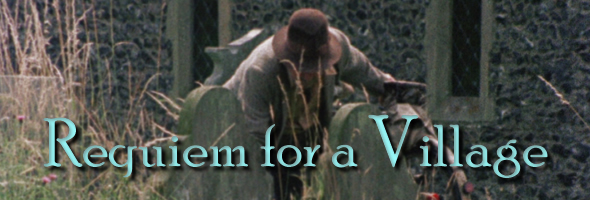
Color, 1975, 68 mins. 16 secs.
Directed by David Gladwell
Indicator (Blu-ray) (US R0 HD), BFI (Blu-ray & DVD) (UK R0 HD/PAL)
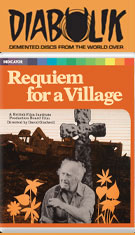

Color, 1975, 68 mins. 16 secs.
Directed by David Gladwell
Indicator (Blu-ray) (US R0 HD), BFI (Blu-ray & DVD) (UK R0 HD/PAL)
 contributions to the Blu-ray generation was the very diverse discoveries from their vaults unveiled in the BFI Flipside line, and one of its most impressive tributes
contributions to the Blu-ray generation was the very diverse discoveries from their vaults unveiled in the BFI Flipside line, and one of its most impressive tributes 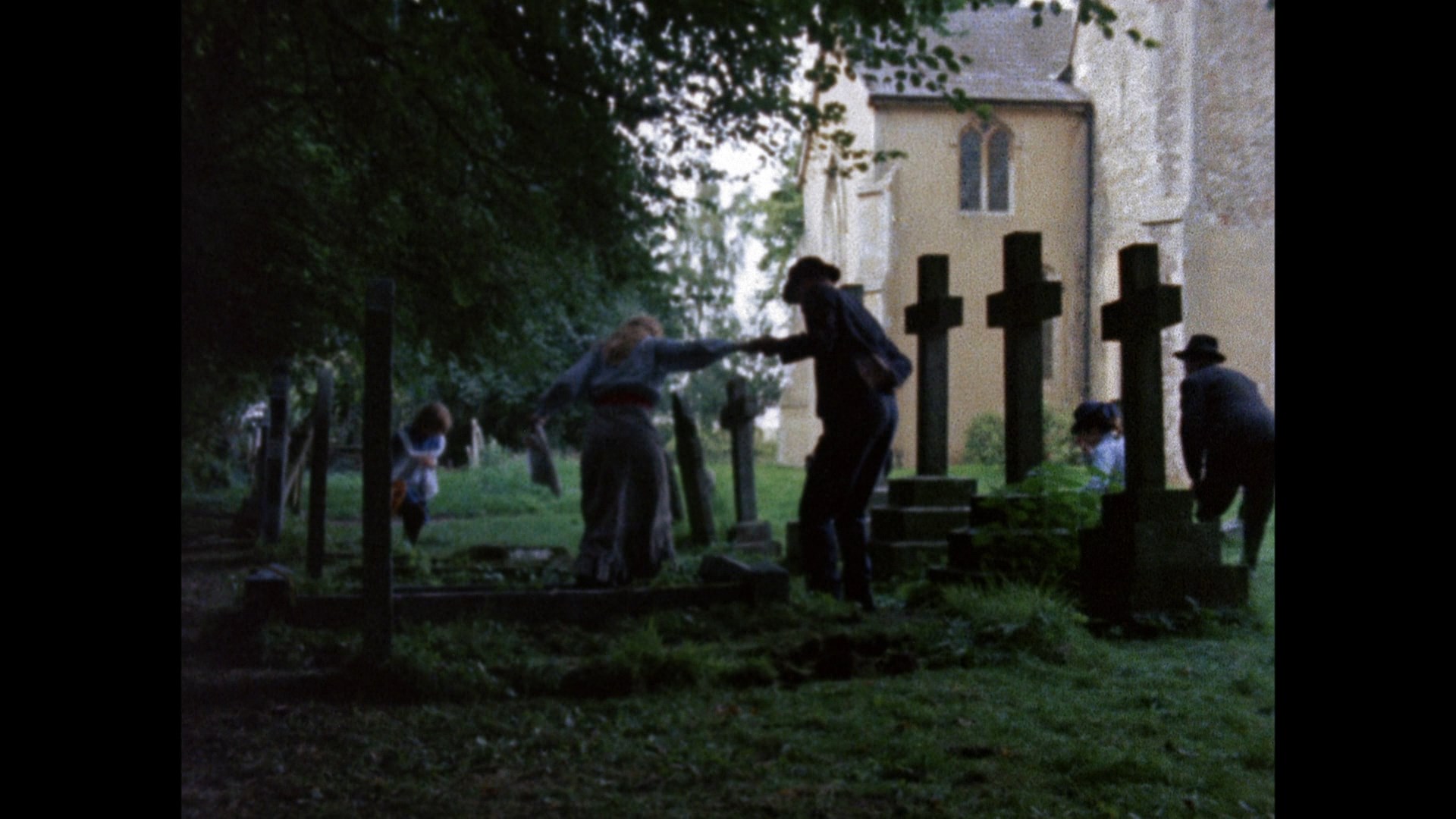 was its salute to David Gladwell, the one-time editor for Lindsay Anderson (on films like If... and O Lucky Man). The centerpiece here is the titular Requiem for a Village, a feature-length, unclassifiable mood piece that starts off as a narrative-free ode to country life with ominous shots of bulldozer raising the English earth into a chaotic heap. A local gravedigger wanders through a church graveyard and serves as sort of the unifying device of the film, including thumbnail sketches of some of the lives of the villagers. However, that's just the beginning as the steady but experimental structure of the film intercuts the arrival of some thug bikers, a nervous couple's wedding night, an older couple's romp in bed, resurrected locals rising up from their graves among a bed of pebbles, and grim views of what will happen to the village thanks to the onset of modern progress, all set to a spare and eerie pastoral score.
was its salute to David Gladwell, the one-time editor for Lindsay Anderson (on films like If... and O Lucky Man). The centerpiece here is the titular Requiem for a Village, a feature-length, unclassifiable mood piece that starts off as a narrative-free ode to country life with ominous shots of bulldozer raising the English earth into a chaotic heap. A local gravedigger wanders through a church graveyard and serves as sort of the unifying device of the film, including thumbnail sketches of some of the lives of the villagers. However, that's just the beginning as the steady but experimental structure of the film intercuts the arrival of some thug bikers, a nervous couple's wedding night, an older couple's romp in bed, resurrected locals rising up from their graves among a bed of pebbles, and grim views of what will happen to the village thanks to the onset of modern progress, all set to a spare and eerie pastoral score. 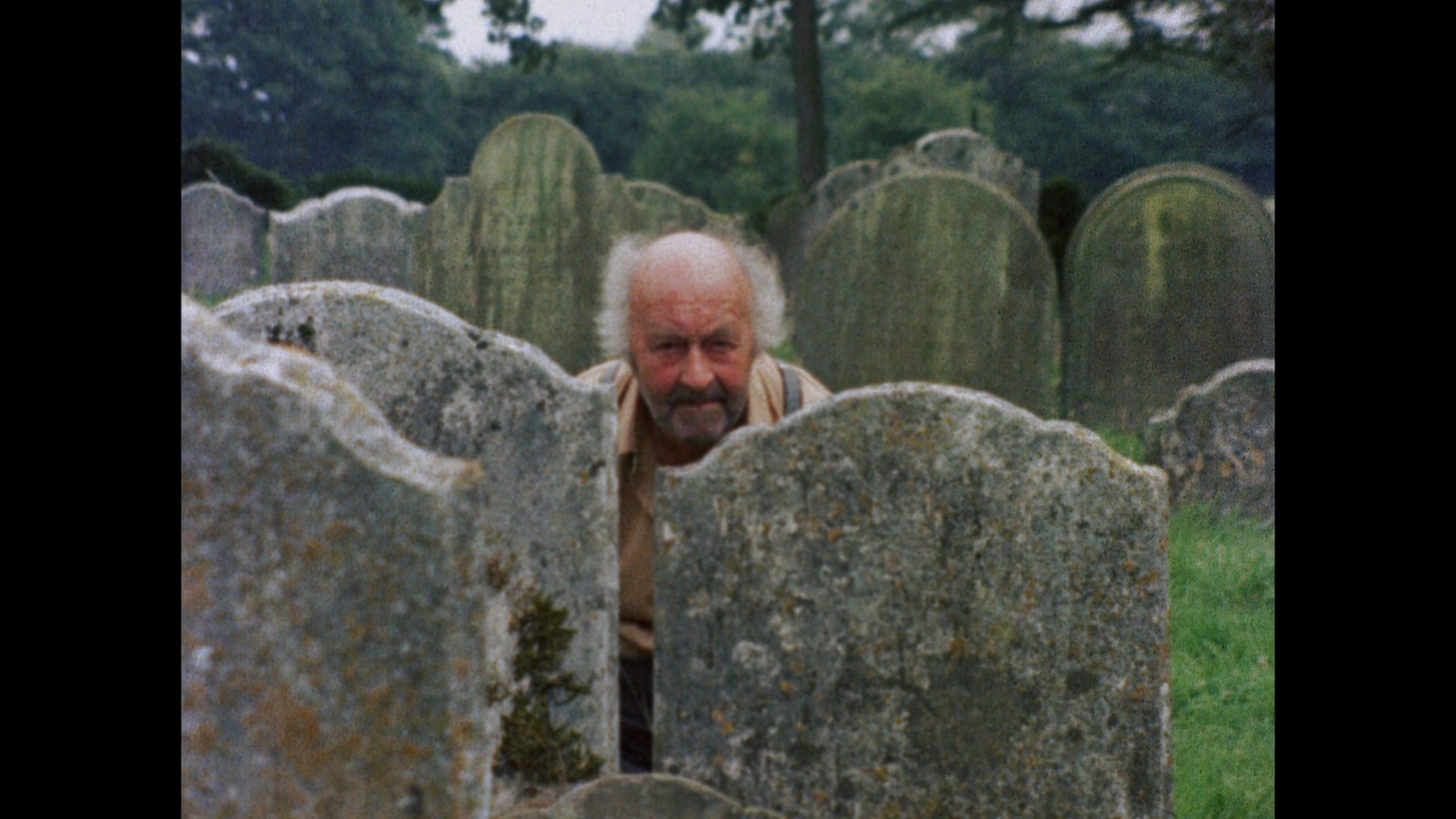 countryside recall similar poetic touches from films like Days of Heaven, albeit shot under much more financially-challenged conditions. As should
countryside recall similar poetic touches from films like Days of Heaven, albeit shot under much more financially-challenged conditions. As should 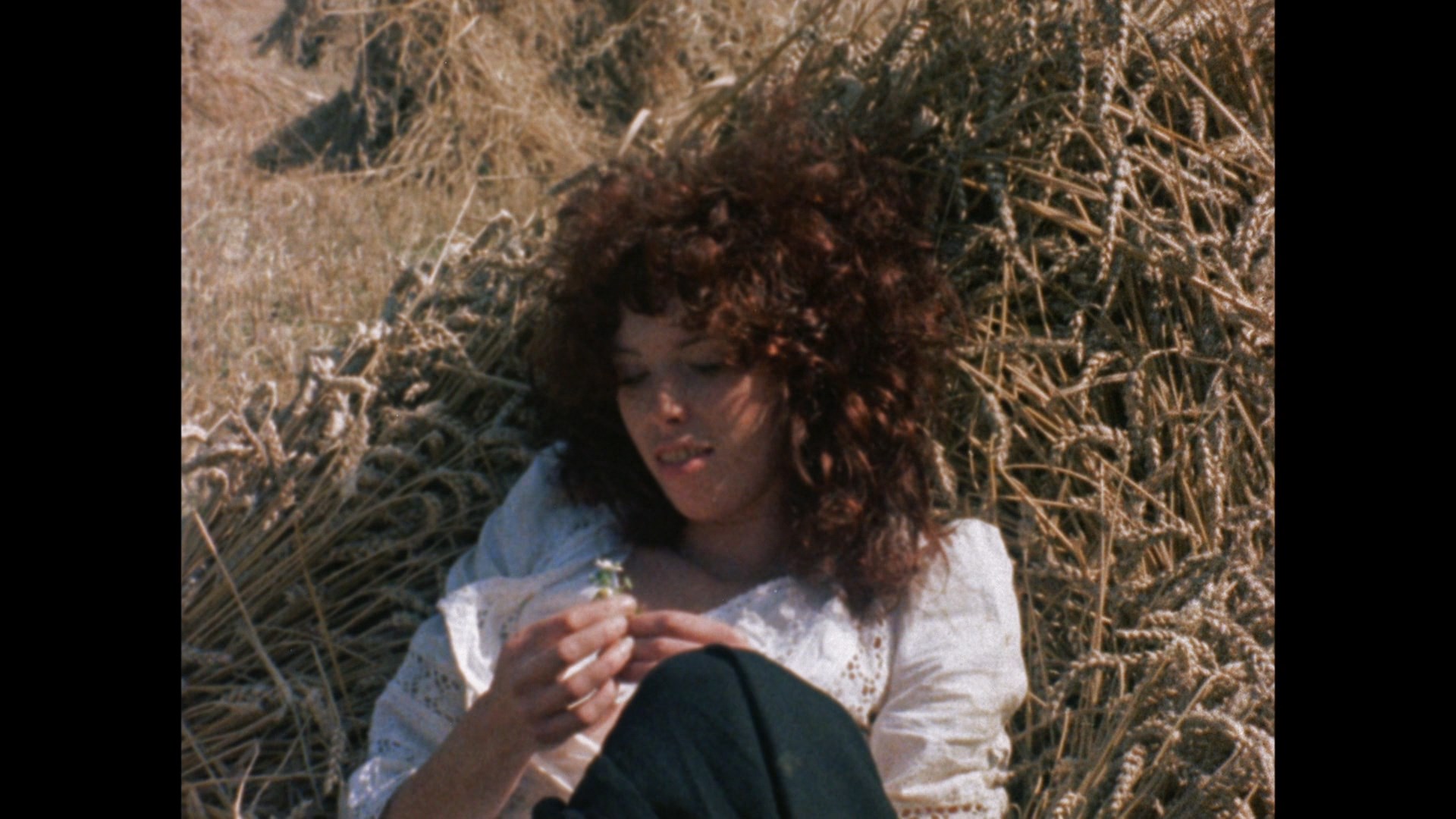 be obvious, it's an amazing film to watch if you're willing to go along with its idiosyncratic
rhythms, and there's certainly nothing else like it out there. Though not strictly horror, it certainly has an otherwordly atmosphere to it potent enough to merit its inclusion in the essential folk horror documentary, Woodlands Dark and Days Bewitched.
be obvious, it's an amazing film to watch if you're willing to go along with its idiosyncratic
rhythms, and there's certainly nothing else like it out there. Though not strictly horror, it certainly has an otherwordly atmosphere to it potent enough to merit its inclusion in the essential folk horror documentary, Woodlands Dark and Days Bewitched. 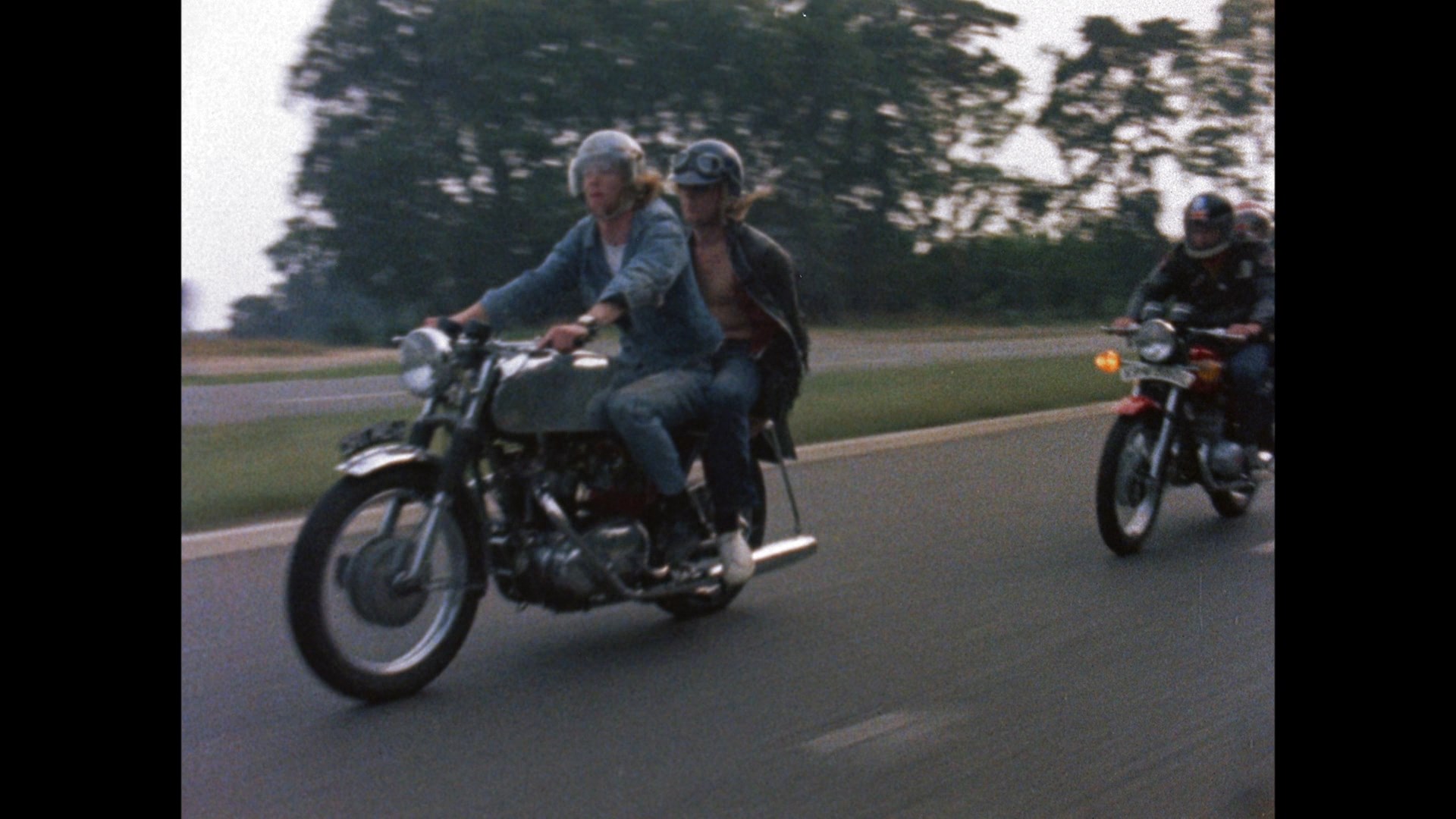 35mm with vivid colors and in scope, offering a punchy visual study of a '60s carnival. The enclosed booklet contains a 1975 Sight & Sound essay by Elizabeth Sussex about Requiem for a Village, a newer written appraisal about it by Rob Young, a brief series of recollections by Gladwell about his time with the BFI, a Gladwell
35mm with vivid colors and in scope, offering a punchy visual study of a '60s carnival. The enclosed booklet contains a 1975 Sight & Sound essay by Elizabeth Sussex about Requiem for a Village, a newer written appraisal about it by Rob Young, a brief series of recollections by Gladwell about his time with the BFI, a Gladwell 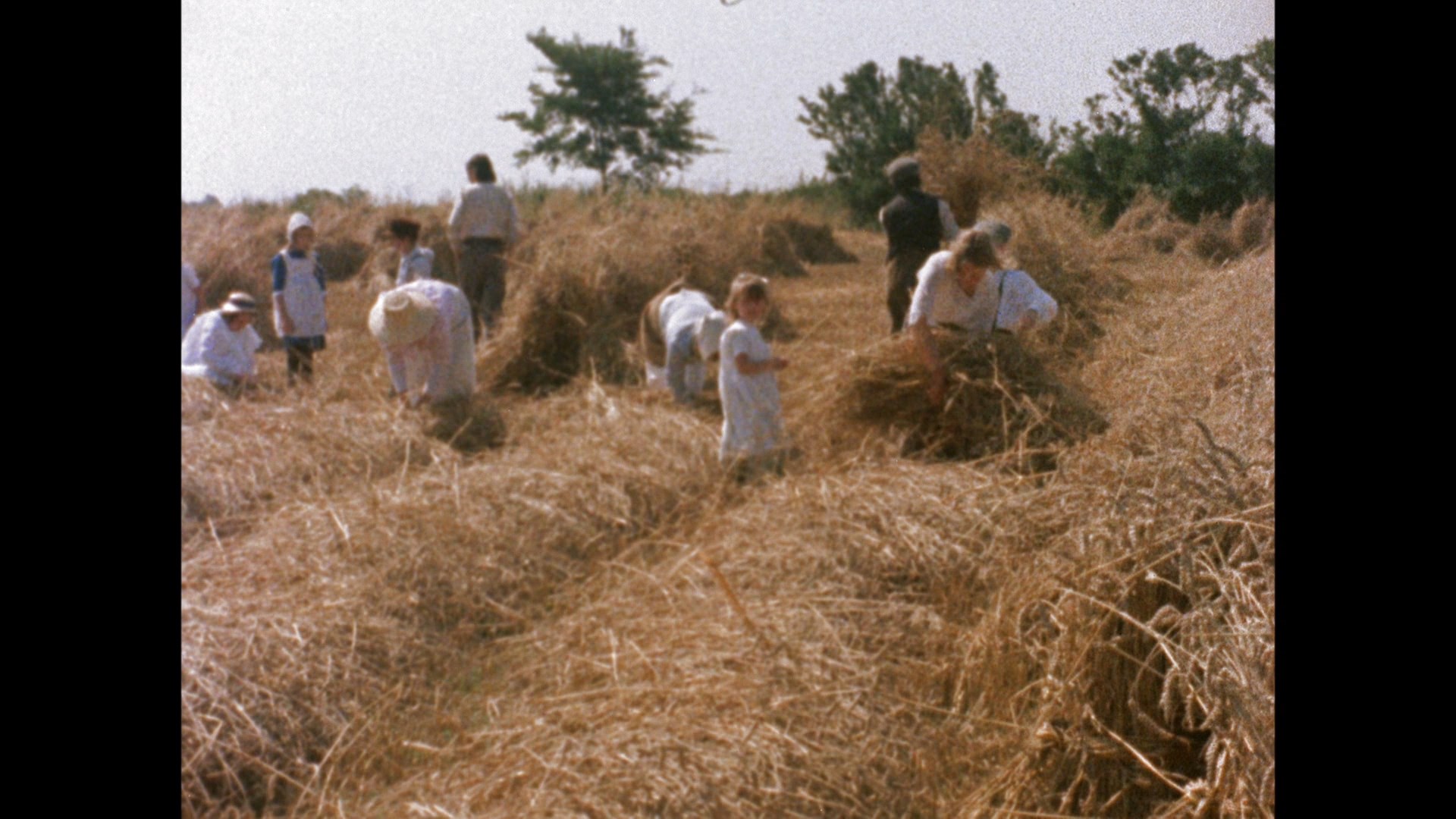 bio, a Suffolk map, and brief notes about each of the shot films by William Fowler and Patrick Russell.
bio, a Suffolk map, and brief notes about each of the shot films by William Fowler and Patrick Russell.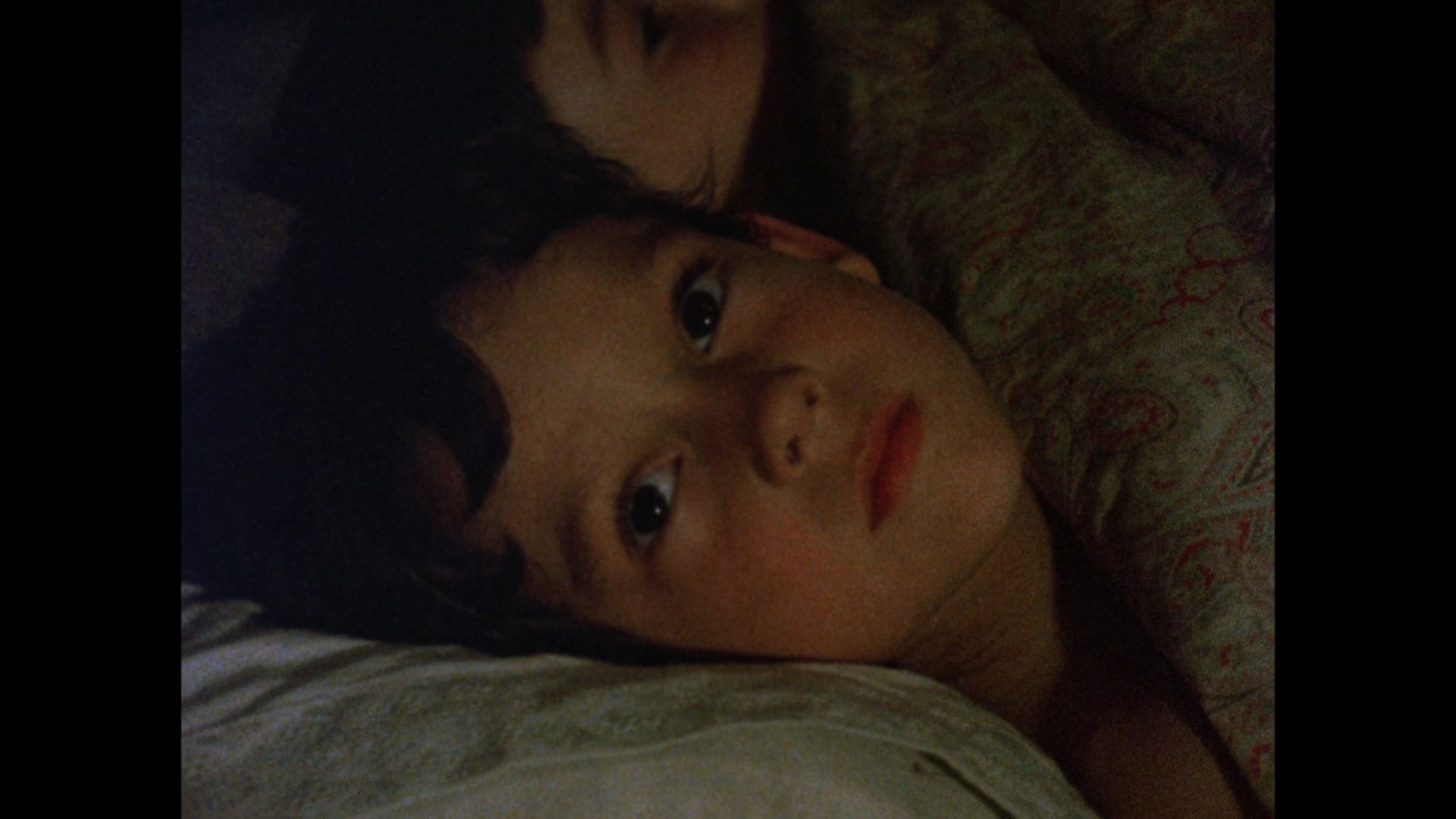 titular Northumberland hospital for the mentally disabled that took a revolutionary approach to providing a "community oriented" treatment aimed at helping its young inmates function back in society rather than sticking them in long-term care. Finally
titular Northumberland hospital for the mentally disabled that took a revolutionary approach to providing a "community oriented" treatment aimed at helping its young inmates function back in society rather than sticking them in long-term care. Finally 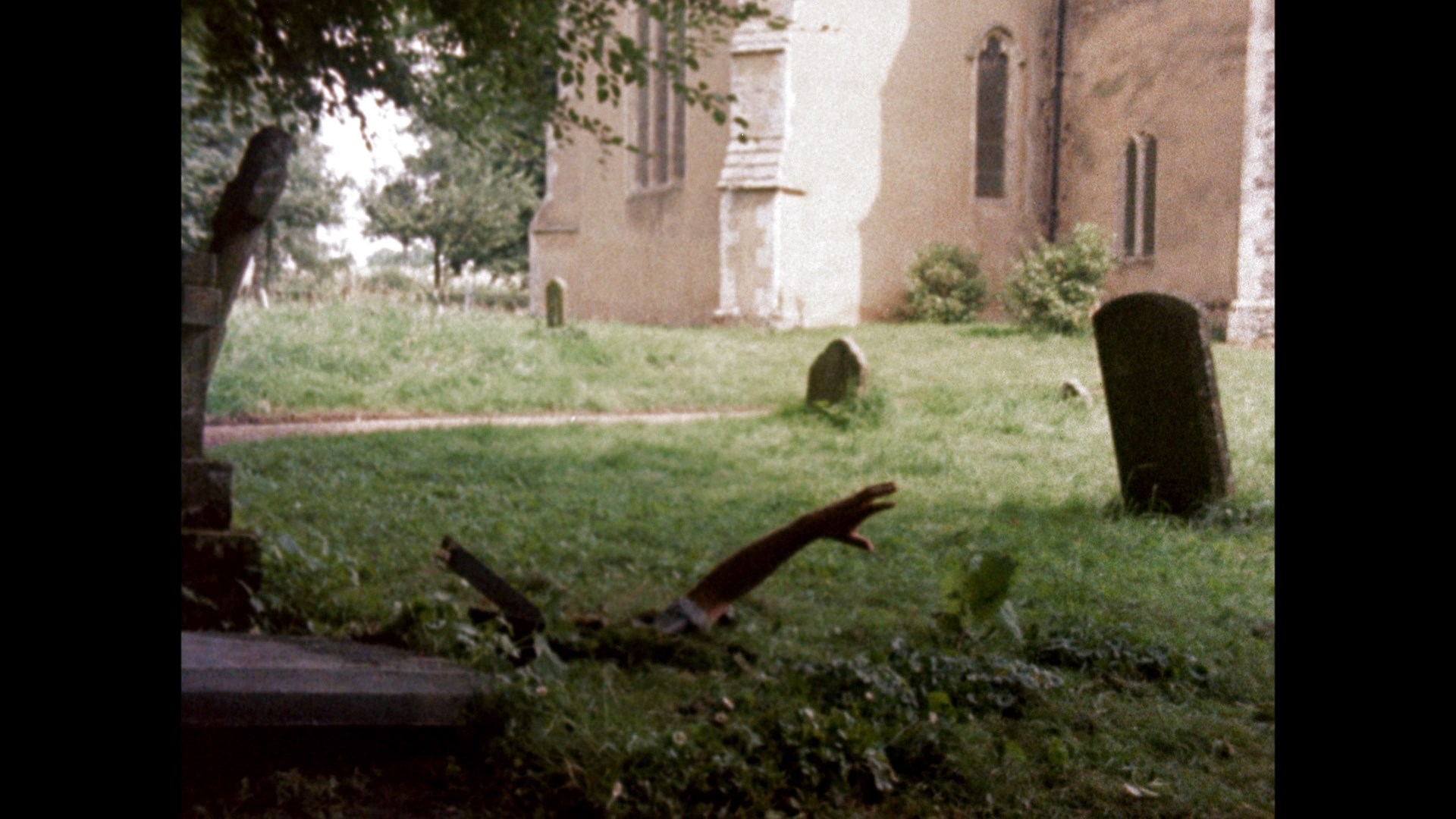 1971's Can Horses Sing? (25m38s), directed by Elizabeth Sussex and edited by Gladwell, is a gentle, harpsichord-laden snapshot of life at a Scottish country school, with little touches involving its mobile library, milk deliveries, lunchtime rituals, and playtime activities. (The English SDH subtitles come in really handy for this one!) That short also comes with a new commentary by film historian Thirza Wakefield who offers some context in relation to other connected films, the role of narration, and the portrayal of environment as a key thematic element. Also provided are five separate, quite extensive galleries: A Summer Discord and Miss Thompson Goes Shopping; early treatments for Requiem for a Village; production and distribution of Requiem for a Village; Gladwell correspondence; and Gladwell paintings. As usual the limited edition packaging comes with a substantial insert booklet featuring a new essay by Ben Nicholson, archival articles, and notes by Adam Scovell on the short films.
1971's Can Horses Sing? (25m38s), directed by Elizabeth Sussex and edited by Gladwell, is a gentle, harpsichord-laden snapshot of life at a Scottish country school, with little touches involving its mobile library, milk deliveries, lunchtime rituals, and playtime activities. (The English SDH subtitles come in really handy for this one!) That short also comes with a new commentary by film historian Thirza Wakefield who offers some context in relation to other connected films, the role of narration, and the portrayal of environment as a key thematic element. Also provided are five separate, quite extensive galleries: A Summer Discord and Miss Thompson Goes Shopping; early treatments for Requiem for a Village; production and distribution of Requiem for a Village; Gladwell correspondence; and Gladwell paintings. As usual the limited edition packaging comes with a substantial insert booklet featuring a new essay by Ben Nicholson, archival articles, and notes by Adam Scovell on the short films.![]()